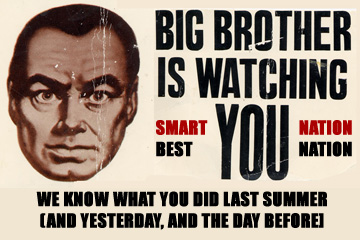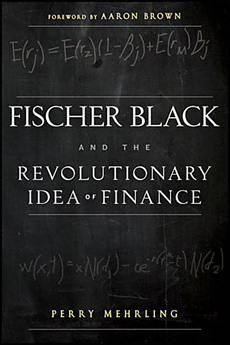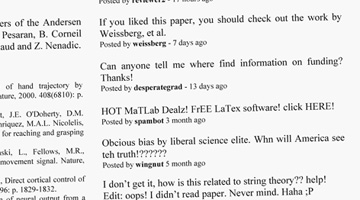|
| |
|
| |
|
|







|
|
TCHS 4O 2000 [4o's nonsense] alvinny [2] - csq - edchong jenming - joseph - law meepok - mingqi - pea pengkian [2] - qwergopot - woof xinghao - zhengyu HCJC 01S60 [understated sixzero] andy - edwin - jack jiaqi - peter - rex serena SAF 21SA khenghui - jiaming - jinrui [2] ritchie - vicknesh - zhenhao Others Lwei [2] - shaowei - website links - Alien Loves Predator BloggerSG Cute Overload! Cyanide and Happiness Daily Bunny Hamleto Hattrick Magic: The Gathering The Onion The Order of the Stick Perry Bible Fellowship PvP Online Soccernet Sluggy Freelance The Students' Sketchpad Talk Rock Talking Cock.com Tom the Dancing Bug Wikipedia Wulffmorgenthaler |
|
bert's blog v1.21 Powered by glolg Programmed with Perl 5.6.1 on Apache/1.3.27 (Red Hat Linux) best viewed at 1024 x 768 resolution on Internet Explorer 6.0+ or Mozilla Firefox 1.5+ entry views: 1409 today's page views: 187 (6 mobile) all-time page views: 3386228 most viewed entry: 18739 views most commented entry: 14 comments number of entries: 1226 page created Fri Jun 20, 2025 04:16:28 |
|
- tagcloud - academics [70] art [8] changelog [49] current events [36] cute stuff [12] gaming [11] music [8] outings [16] philosophy [10] poetry [4] programming [15] rants [5] reviews [8] sport [37] travel [19] work [3] miscellaneous [75] |
|
- category tags - academics art changelog current events cute stuff gaming miscellaneous music outings philosophy poetry programming rants reviews sport travel work tags in total: 386 |

| ||
|
This is one of those posts that more or less stitches itself together, all the more without the distraction of Mr. Ham, who has lumbered into action. Dispensing with the roundups - in general tech, Windows 10 is rolling out, Google's barging in on Leap Motion's free gesture control, and the Solowheel indeed seems to be getting replicated on a vast scale (as recently suspected). As for Singapore, the Big G's expanding its data centre (which happens to be just down the street), while the government's leapfrogging the whole Big Data fever, going straight to Smart Data, because Smart Nation (they do seem to be serious about it) [Trivia: Google Maps apparently learns new routes from driver behaviour.] Actually, from the description (quote: "...where big data collected from an expansive network of sensors and enhanced data analytics capabilities"), I can't help but be reminded of Big Brother, and his watching thereof. Notably, the USA may well be going in the other direction for now after Rand Paul's move to block the Patriot Act, which if successful will greatly tone down the NSA's surveillance powers - at least officially. But, over in Merrie Olde Britain, the freshly-reelected David Cameron's proposing that tweets and Facebook posts be routed to the police for approval. Uh...  You have nothing to fear if you have nothing to hide, citizen. Otherwise, there might be... exciting times ahead. (Original source: peacelovevenus.com) The US of A looks to have forced Blatter's resignation over bribery charges, in the meantime, with indicted associates falling over each other to spill the beans - US$7 million for an Egypt vote here, 5 million Euros for Ireland not to protest Henry's handball in 2010 there, crates of rocket-propelled grenades from Germany to Saudi Arabia as a token of appreciation for supporting their bid for 2006... eh, say what you want, but the Germans don't mess around. Oh, and Barca won another Treble, but where's the drama compared to this? Blockchain Transparency, Unblocked Privacy Back to the digital arena, the School of Computing has just hosted a session by Vitalik Buterin, this Friday afternoon. Quick C.V.: he's a 21 year-old Canadian (originally from Russia) who discovered and got involved in Bitcoin in 2011 (an eternity ago, now it seems), and after launching perhaps the first magazine dedicated to it, has gone on to develop the "blockchain-based virtual machine Web 3.0 platform" Ethereum (yes, that's a mouthful), in the process snagging a Thiel Fellowship, and a fair bit of press. And as it happens, the session was chaired by Virgil Griffith, hacker extraordinaire who back in 2008 developed the Tor2web hidden service enabler, together with the sadly-deceased Aaron Swartz, a sort-of co-founder of Reddit itself, and who after all that adventure, is now a research fellow with the department. The world's indeed kinda small. Returning to the talk proper. Being an hour-and-a-half introduction, one cannot quite expect it to have gotten all that deep, and a large part of it was devoted to the basic properties of a decentralised blockchain, or how it is that parties not sharing a mutual trust can nevertheless settle on a consensus (see the 2011 introduction on this blog). Still, from the questions posed (assuming they are not out of courtesy), the entire concept isn't overly well-understood yet, which might be promising from a value trading perspective. Buterin took care to examine blockchains in terms of economic incentives (particularly Schelling points/Nash equilibria), and in addition to the old proof-of-work versus proof-of-stake debate (pitting proof-of-work's constant external resource burn against proof-of-stake's lack of fail-safes once 51% ownership is reached - note that exchanges and online vaults could effectively become miners too, under proof-of-stake), a social network consensus between trusted friends was also discussed (though one suspects that the action will concentrate on the especially socially-active hubs) Tellingly, while the speaker was definitely informed about the cryptocurrency space (such as the ongoing contract dispute between leading China-based exchange OKCoin and "Bitcoin Jesus" Roger Ver, which has progressed to alleged cryptographic signature forging), direct references to particular events and implementations were few and far between, in line with a trend towards drumming up "blockchain tech", and downplaying the "Bitcoin" token part, probably due to its kinda-tainted brand. Even ether itself was abstracted away to "gas", with no mention of the presale.  Render unto, etc etc (Source: meetup.com) On this, the rebuttal has remained mostly constant - without a proper underlying financial reward (i.e. the Bitcoins themselves), there would be next to no security provided in terms of resources dedicated, and without that, any blockchain could easily be attacked (which has happened to more than one altcoin, and turned some to merged mining) - which is an argument for why users would gravitate towards the strongest blockchain. A private "trusted" blockchain might have some applications, but in these cases, why not just rely on far more efficient centralised database systems instead? Anyway, to briefly summarize the state of Bitcoin at the moment, the price remains stagnating just above the suggested US$200 floor, which one can hope represents an accumulation phase for sophisticated investors. On the regulatory end, New York has finally released its BitLicense, which could hit small-time dealers pretty hard, even as its drafter has stepped down to consult on the subject. Infrastructurally, the MIT Media Lab appears poised to step in and provide some guidance. Don't quite see a US$50 billion supercomputer coming to fruition, though. On the technical side, a key developer has sparked heated debate with his move to raise the amount of data able to be transmitted in each block (with the possible ensuing hard fork explained by Buterin with reference to Gold A and Gold B), while on the consumer side, 21 Inc. has raised some US$116 million... to put mini-miners in everyday appliances such as toasters. Observers seem doubtful as to whether this is economically feasible at all, given the electricity and time required to produce measurable quantities of Bitcoin nowadays - myself, I'll just be watching.  Bread goes in, Bitcoin comes out (Original source: flickr.com) Moving on to Ethereum, Buterin's pet project, its scope is certainly impressive. While it does incorporate a large number of new innovations, such as another ASIC-resistant algo, by far the main distinction is that it includes a Turing-complete scripting language. In other words, users can define actions to be automatically taken by the network/database, once certain conditions are met, as long as the conditions are expressible in the scripting language. As an example, a new currency can be defined as some value within the database, and transferred by simply incrementing/decrementing the relevant accounts. In my opinion, Ethereum faces two main challenges. Firstly, producing bug-free script for new use-cases is likely not trivial, and Buterin indeed illustrated the common mistake of not vetting negative transactions (i.e. thus taking value, instead of giving it), in the currency example (note that a similar scoping bug plagued the original Bitcoinica exchange) Secondly, smart contracts in general are reliable insofar only as they reflect the actual state of the environment. In some situations, they are indeed elegant - another given example is that of an engineering optimization scenario, where a firm wishes to reward design submissions that surpass some preset benchmark. Then, assuming that the evaluation is deterministic, the firm could set up a smart contract script that accepts and tests submissions, and releases the promised reward once the conditions are met. The suitability of such transactions possibly becomes more problematic, once other channels are involved. Let us say that Party A and B record the transfer of some property from A to B. However, unbeknownst to B, A has pledged the same property to others, and received payment from each (the classic rehypothecation problem) While this issue is hardly restricted to blockchain-based systems, it does seem to suggest that their best fit will be found with the temporary provision of services - which to be fair, seems to be what software as a whole is moving towards. Aside: Private Musings A pretty common issue I have encountered is the reluctance of organizations to trust third parties with their data. In short, they may want an image to be analyzed, but are not willing to entrust it to an external server (sometimes due to mandated regulations). The usual solution has been to provide them with the needed software to be run locally (i.e. bring the program to the data, instead of the data to the program); however, the software provider is then faced with the same prospect of having their data (in this case, the software) copied! Who wins this particular battle, in my experience, is the side with the more pull. But, is there a way out? There are, to my knowledge, at least a couple of approaches, both probably already mentioned before. If the data is static, it can simply be encrypted, then entrusted to the third party for storage (i.e. the Storj service). Things are trickier if the third party has to perform operations on the encrypted data, without being able to reconstruct the original data. Gentry's work on homomorphic encryption says that it can be done... but at the cost of being practically infeasible in terms of speed. This does however raise the question, of whether it is actually necessary for the data to be encrypted, to provide an acceptable level of security/privacy. Using network packets as an analogy, if the data is broken down sufficiently and spread independently to a huge number of third parties, it may be that those third parties will not be able to recover the original if the initial deconstruction scheme is withheld, especially if additional noise (which the originator knows to ignore) is seeded. The key then, other than converting the algorithms, would seem to be the existence of a sufficiently-distributed network. Hmm, where might I have heard of that? Fischer Black  (Source: scene7.com) Recall My Life As A Quant, reviewed here in February? Well, today is when we pick up on one of the major secondary characters then - Fischer Black, he of Black-Scholes fame, Derman's colleague during his time at Goldman Sachs. Mehrling's Fischer Black and the Revolutionary Idea of Finance is a 2005 biography of the man (the text tends towards referring to him by his first name, for some reason; we adopt this convention). Other than Black-Scholes and the Black-Derman-Toy short rate model, he had developed not a few others such as the Black-Litterman portfolio allocation model. However, while these made his name in finance, they were not what he regarded as his life's mission - as we shall see. Quick background: Raised in a rural setting in his childhood, Fischer's intellect was never in doubt, and he would make his way to Harvard. Always independent to a fault in his opinions and behaviour, he was something of a dilettante in college, taking courses as he pleased, and declared for Social Relations as his major, before winding up in physics, after a detour through biology and chemistry. No sweat. Along the way, he had a number of run-ins with authority, from his high school teachers, then to espousing communism (smack in the middle of the McCarthy era, mind), and wound up experimenting with hallucinogenic drugs and taking part in student protests at Harvard. The last got the unrepentant Fischer some time-out in jail, but fortunately for him, a couple of years in reformative training was not prescribed. Having dodged a bullet, Fischer enrolled in Harvard graduate school, where he clambered further up the scales of purity, switching again from theoretical physics to applied mathematics - and, in effect, artificial intelligence. Marvin Minsky himself would vouch for him after Fischer initially got kicked out of his program for lack of progress, and Fischer got his doctorate in 1964 with a dissertation on "A Deductive Question Answering System" - which seems to be a rudimentary knowledge engine in the vein of Wolfram Alpha.  Your query has been noted. Please stay at the terminal. A Harmonious Thought Enforcer will arrive to pick you up shortly. Fischer being Fischer, he dropped A.I. as soon as his thesis was submitted, and went back to consulting. He had already been through one marriage by this point, and would soon be onto a second. Without giving too much away, it is possible to reveal here that his family - and wife in particular - never quite appreciated his research ethic, all the more as it didn't pay all that much, a complaint that is sadly all too common. About this time, Fischer began collaborating with Jack Treynor on the Capital asset pricing model (CAPM), with a view towards quantifying the performance of professional portfolio managers. Perhaps unsurprisingly, investigations revealed that mutual funds did not, in fact, beat the market. Also unsurprisingly, the industry wasn't happy about the findings, and sought to quash them. Yeah, what's new? While Fischer would, after coming up with the Black-Scholes model by 1969 (but only publishing it four years later), be headhunted by the University of Chicago's legendary economics department, and then in 1975 leave for MIT, and once again in 1984 for Goldman Sachs (crossing paths with Derman), the pattern of his life was more or less set - what he demanded was, more or less, freedom and privacy. Quite the classic INTJ stereotype, as typed by the author. At Goldman, as at Chicago and MIT, his main request was a room of his own (prefably with a steel door), where he could conduct his affairs, whether of consequence or no, as he desired. Surrounded by manila folders containing his old thoughts (since he had long since decided that human potential was best expended on creativity, as they couldn't beat computers on memory or processing power), Fischer would toil from dawn till dusk, phoning anyone whose work he took interest in - but only for clarifications, and not small talk. Work habits aside, the reception he got was also not dissimilar, whereever he went. Recall that while he is known for many models, they were all considered finance - which was, in those days, considered far less prestigious than, and not quite, economics. Moreover, in sticking to his grand vision of general equilibrium theory, Fischer would fall foul of Friedman's monetarists at Chicago, and Samuelson's neo-Keynesians at MIT. While neither group were uncivil towards him, it remained that he mostly could not get his ideas published in respectable journals, to his chagrin. The Black-Scholes model was, for example, outright rejected twice without even the dignity of going through peer review.  Damn sad. (Source: loria.fr) Now, on Fischer's general equilibrium theory, one of the enduring criticisms is that in trying to do too much, it achieves little. In summary, it promises to "explain more or less all the economic facts we observe in the world as consequences of general equilibrium... without special assumptions about price rigidities, externalities, or imperfect markets." - topics which, as any economics major should know, are referenced throughout the foundational courses. This is roughly Scott Aaronson's beef with the amplituhedron from a couple of years back, and also the spirit of von Neumann's celebrated quote that "...with four parameters I can fit an elephant, and with five I can make him wiggle his trunk." - with a general enough model, one can explain any phenomena, but if one can explain any phenomena, how useful was the model to begin with, really? Keynesian modelling does at least admit probing variables and observing the effects (but as to how accurate it is, I cannot say) It should be emphasized that while Fischer was definitely unorthodox and original, he was also, at least in methodology, a strictly big-picture theory guy. While happy enough for his models to be used practically, or even approximated (as with replacing the original continuous-time Black-Scholes with the simpler and faster discrete Cox-Ross-Rubinstein binomial formula, when he was at Goldman Sachs), he insisted that the derivation be rooted in theory, notably distrusting empirical statistical fitting (econometrics, and likely machine learning). Fischer even confiscated books on technical analysis from unwitting traders, so strong was his devotion to theory. [N.B. On a slight tangent, it was mentioned early on that the University of Chicago had, in the early 1960s, put together a then-unprecedented database of historical asset prices, on the state-of-the-art UNIVAC I, an undertaking that required forty clerks, 400000 punch cards, six months for the coding, and four more years of data cleaning and checking - how they didn't christen it "Big Data", I don't know.]  Huh? Doesn't even fill a single cabinet, and they call it big? (Source: wikipedia.org) That said, it is probably fair to say that Fischer was personally not quite a success in actual markets - after coming up with the Black-Scholes model, he excitedly joined Scholes and Merton in trying to profit on mispriced warrants, only to lose money due to neglecting a corporate takeover event. At Goldman Sachs, armed with new insights on "noise" versus "information" traders, he promptly lost half a million in a few weeks (though it was at least the firm's money). And who can forget the Long-Term Capital Management fiasco, though to be fair this was on the heads of his associates? A persistent failing of academic economics, in my opinion, is that it all too often neglects to consider strongly enough the possibility that, sometimes, the guy on the other side of the trade just wants to screw you; one might describe this as Talebian realeconomik (consider his view on "equilibrium"). A proof of convergence is all well and good, but it's not what Jack Shark's thinking when he's hocking junk bonds. Then again, it's not as if Fischer was totally blind to the concept. He did, for instance, make Goldman Sachs quite a bit of dosh by recognizing that, since the interest that firms pay on issued bonds is tax deductible, while interest received on bonds held in pension funds is tax-free, firms should just issue their own bonds to fund pensions. Of course, this was basically a glorified accounting trick, but it sure worked - which only reinforces the stand that big theories might not be what you want to have, if making money is your game. Still, by all accounts, Fischer was never in it for the dosh - his reaction to the Black Monday crash of 1987 was to clap in glee, at witnessing economic history in the making. It was all about his quiet room, and his crazy ideas. He died of cancer in August 1995, but not without forwarding his last unfinished manuscript - journal submission fee attached - to a colleague. Postscripts As for Fischer's mentee Derman, he has just reviewed a book on Bitcoin for the NYT a few months back, if a tad briefly and non-committally. Buterin's latest Ethereum blog post is on the problem of censorship in blockchains. There are interesting implications for a take-it-all-or-leave-it model... for one, copyright would be impossible to enforce, once the object is published on the blockchain. Do I see Socialistcoin on the horizon? Current Greek finance minister Yanis Varoufakis has catalogued his opinions on Bitcoin and the late John Nash. Guess which he's not a fan of (hint: deflation and distribution) Note: Nash himself had his own say on the matter too, a few months back. Next: Low Blowed
|
|||||||
 Copyright © 2006-2025 GLYS. All Rights Reserved. |
|||||||